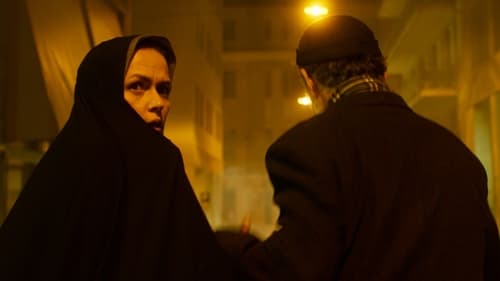
Farrokh
Набожные супруги-мусульмане Пари и ее муж прилетают в Афины из Ирана, чтобы навестить своего сына-студента Бабака. Но он не встречает родителей в аэропорту, и они вынуждены отправиться в город на его поиски. В центре Афин родители попадают в самую гущу уличных митингов и беспорядков. Пари, в отличие от своего мужа, знает английский язык и берет дело в свои руки. Впервые она чувствует себя главой семьи, решающей проблемы самостоятельно. Эта новая роль вдохновляет Пари: она встречается с незнакомцами, узнает новые детали и постепенно продвигается по следам своего блудного сына.

The film relates the story of a surgeon (Doctor Pārsā) who returns to Iran after living in Germany for 33 years. Arriving in Tehran, Doctor Pārsā performs a heart operation on the nephew of the family friend Mr Ghanāti. Mr Ghanāti urges him to travel with him to his home town, Bam. On the trip, they drive past the rubble and destruction and Pārsā remembers back to his childhood.[citation needed]

Screenplay
Shot with striking immediacy by a subjective camera, “Angst isst Seele auf” assumes the point of view of a black actor in Germany dealing with racist abuse as he prepares to appear in a play based on Fassbinder’s film, about the taboo relationship between an older German woman and an Arab man. Sharing the same lead actress (Brigitte Mira), cinematographer (Jürgen Jürges), and editor (Thea Eymèsz) as in Rainer Werner Fassbinder’s 1974 Film “Angst essen Seele auf”, these twin works offer a searing indictment of prejudice within German society.

Director
Shot with striking immediacy by a subjective camera, “Angst isst Seele auf” assumes the point of view of a black actor in Germany dealing with racist abuse as he prepares to appear in a play based on Fassbinder’s film, about the taboo relationship between an older German woman and an Arab man. Sharing the same lead actress (Brigitte Mira), cinematographer (Jürgen Jürges), and editor (Thea Eymèsz) as in Rainer Werner Fassbinder’s 1974 Film “Angst essen Seele auf”, these twin works offer a searing indictment of prejudice within German society.



